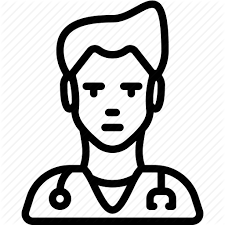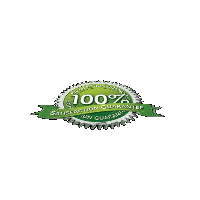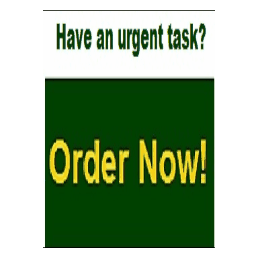Proficiency Worksheet for Nurse I Level 3
RN Proficiency Worksheet for Nurse I Level 3
Your Nurse I Level 3 proficiency is due on Now As required by your grade as a professional RN, I need your input into this proficiency ASAP.
SCOPE:
Nurse I Level 3 Individuals are able to:
- Demonstrate individual growth and development in clinical practice to increasing levels of self direction.
- Uses QI findings to guide OWN practice ( participatory role)
- Incorporates feedback into personal development
- Seeks knowledge for individual competency
- Attends/participates in staff meetings and in-services
- Assumes responsibility for individual judgments/actions
- Demonstrates collaboration by team participation, interpersonal skills, development of collaborative plans for care.
- Demonstrates awareness of research , uses to validate or change OWN practice
- Effectively plans/directs flow of patient care and nursing resources
(Individual/team level)
- Providing directions to others who provide care
Nurse I Level 2 demonstrates integration of bio-psychosocial concepts, cognitive skills, and technically competent practice in providing care to clients with basic or complex needs.
The examples you describe in this document should demonstrate a variety of behaviors you have performed during the past year that support the performance required to achieve and sustain the four dimensions for a nurse I Level 3 grade*
*Note: You are being evaluated in four Dimensions:
| FOUR DIMENSIONS | STANDARD CRITERIA |
| 1. Practice | Practice, Ethics, Resource Utilization |
| 2. Professional Development | Education / Career Development, Performance |
| 3. Collaboration | Collaboration, Collegiality |
| 4. Scientific Inquiry | Quality of Care, Research |
Directions: Describe at least one example for each of the nine standards. State what you have done/accomplished to meet the standard requirements. For each example you give , answer the following four questions: 1) What did you do?(ACTION) , 2)When did you do it (sustainability), 3)Who did you do it for, and 4) What was the result or measurable outcome?
Additional examples can be found in the clinical pathway workbook , which is available on the Office of Nursing Services (ONS) intranet webpage at: http://vaww1.va.gov/nursing/page.cfm?pg=13
| DIMENSION#1: PRACTICE (Has 3 Standards provide minimum of one example for each)
|
| 1a. Nursing Practice (Standard) (Being charge nurse is not required)
Requirements: DEMONSTRATES COMPETENCY USING THE NURSING PROCESS IN PROVIDING CARE FOR CLIENTS. DIRECTS OTHERS WHO PROVIDE CARE.
|
| PRACTICE:
Mr. Smith serves as a charge nurse in ASC/PSC and supervises 9 Registered Nurses. He assigns all duties and is accountable for all actions that occur during that time. Mr. Smith addresses all family issues that arise and takes lead in collaboration with other members of the healthcare team.
Example:
Mr. Smith noted a patient that was diaphoretic and had an elevated heart rate of 109. The patient stated he thought he was just tired from not sleeping well the night before. After further examination and questioning, Mr. Smith noticed the patient was a diabetic and obtained an order to check the patients CBG. The patients CBG reading was 51. Anesthesia was notified and D50 was ordered and given. Patients CBG rechecked 15 minutes later and CBG improved. Patients surgery was continued as scheduled and was successful with no complications.
|
|
|
| 1b. Ethics (Standard) Requirements: ASSUMES RESPONSIBILITY AND ACCOUNTABILITY FOR INDIVIDUAL NURSING JUDGEMENTS AND ACTIONS. ACTS AS A CLIENT ADVOCATE. |
| In PSC, Mr. Smith talks with patients and families to address any concerns they may have before their scheduled surgery procedure. Mr. Smith is responsible for informing the patients about needed labs, advance directives, obtaining EKG, letter of instruction, and providing teaching information so the patient is well aware of his rights to make decisions about the plan of care.
Example: Patient was screened in PSC and stated that his surgery had been cancelled twice because his family at the last minute could not bring him in for surgery. This left the patient without a responsible driver to accompany him for surgery. After speaking with the patient, Mr. Smith did not want his much needed surgery procedure to be cancelled for a third time. With patient permission, Mr. Smith contacted the social worker and arranged DAV transportation to pick the patient up and return the patient home after surgery. The social worker arranged an escort to accompany the patient on the DAV van. Mr. Smith then notified the surgery scheduler to adjust the surgery procedure time around the time DAV transportation begins its route of pickup. The patients’ surgery was successfully and the patient made it back home safely. The patient was very appreciative.
|
|
|
|
|
| 1c. Resource Utilization (Standard) Requirements: PLANS AND ORGANIZES CARE BASED ON CLIENT NEEDS AND PROVIDER COMPETENCIES TO ASSURE SAFE, EFFICIENT, AND COST EFFECTIVE CARE. |
|
Mr. Smith checks the oxygen tanks on a daily basis to ensure that empty tanks are removed and restocked. Stretchers are checked for functioning and proper disposal of personal information is utilized by shred bins. Mr. Smith ensures that no personal information is left exposed on the unit.
Example:
Mr. Smith was assigned to work on the early shift in ASC. A patient was checking in at the nurses station and was scheduled for a bunionectomy. Mr. Smith noticed that the left side of the stretcher would not lock in place and he tagged and removed the item from service. He put in a work order for the stretcher to be repaired. Mr. Smith called over to the OR to get a functioning stretcher since no other beds were available. Patient surgery was successful and no injury occurred.
|
|
|
| DIMENSION#2: PROFESSIONAL DEVELOPMENT (Has two standards provide minimum of one example for each)
|
| 2a. Education/Career Development (Standard) Requirements: SEEKS KNOWLEDGE AND SKILLS APPROPRIATE TO THE PRACTICE SETTING TO IMPROVE PERFORMANCE |
| Mr. Smith participates in the nurse residency program for new nurses and seeks feedback from the residency educator on ways to improve performance on the unit. Topics discussed include wound care management, mental health, mechanical lifts, emergency situations, and complex patient care. In-services on Foley catheters, starting IV’s, and transporting non ambulatory patients has been successfully completed in nurse residency.
Mr. Smith is a full time student at the University of West Georgia. He is working towards an MSN degree in leadership/management and is expected to graduate in May 2017. Mr. Smith has completed all mandatory training in TMS and has acquired certifications in BLS and ACLS within his first year. Mr. Smith completed a face to face dysrhythmia course at the VA to better understand and read rhythm strips for high quality patient care in ASC.
|
| 2b. Performance (Standard) Requirements: INCORPORATES FEEDBACK REGARDING PERFORMANCE AND INTERPERSONAL SKILLS TO ENHANCE PROFESSIONAL DEVELOPMENT. PARTICIPATES IN THE PERFORMANCE EVALUATION OF OTHERS. |
| Mr. Smith volunteers 4 times a year for community health events at Corinth Baptist Church. At these health events, Mr. Smith checks blood pressures, CBG’s, and obtain height and weights. Mr. Smith teaches individuals in the community how to best manage self-care and the significance in blood glucose monitoring for diabetics. Mr. Smith ensures that each individual is able to return demonstration and understand caring for self.
|
|
|
|
|
| DIMENSION#3: COLLABORATION (Has two standards provide minimum of one example for each)
|
| 3a. Collaboration (Standard) Requirements: PARTICIPATES EFFECTIVELY ON TEAMS TO PLAN AND MANAGE CARE FOR CLIENTS. |
| Mr. Smith collaborates with patients and families with teaching in preoperative and post-operative care. Mr. Smith coordinates with patients, families, physicians and anesthesia to carry out the best plan of care for the patients.
Example:
First case GU surgery patient stated that he would not be able to attend next day scheduled surgery during pre-op call due to illness. Mr. Smith informed the OR and physician, and recommended bringing in the later cases earlier to better accommodate the patients. The physician agreed and the patients were called and times were adjusted. This gave the OR and the physician time to make needed adjustments and to make sure instruments were available.
|
|
|
| 3b. Collegiality (Standard) Requirements: –SHARES KNOWLEDGE AND SKILLS WITH COLLEAGUES/OTHERS |
| Mr. Smith serves as the unit instructor for N95 respirator fit testing. Mr. Smith assures that all nursing staff successfully stay up-to-date and understand the importance of the N95 respirator. All staff in ASC are current until April 2017. Mr. Smith participates in staff meetings and recently completed an in-service on how to use a bladder scanner in ASC for patients having trouble passing urine post GU procedures.
Example: Mr. Smith served as a preceptor in ASC to a Senior Augusta University student for the Spring 2016 semester. Mr. Smith shared knowledge to the student in teaching the daily operations of ASC/PSC, charge nurse duties, starting IV’s, assessment and observation of patients, and maintaining confidentiality of patient information. Student had a successful clinical rotation and graduated with a BSN degree in May 2016.
|
|
|
| DIMENSION#4: SCIENTIFIC INQUIRY (Has two standards provide minimum of one example for each)
|
| 4a. Quality of Care (Standard) Requirements: USES QUALITY IMPROVEMENT FINDINGS TO GUIDE AND DIRECT PERSONAL PRACTICES. |
|
Mr. Smith reviews articles related to ASC issues, especially communication. Mr. Smith ensures that patients and families are fully informed, notified in a timely manner when patients return from surgery and medications are ready for pickup before the patients family is sent to the pharmacy.
Example: Following patient procedures, families have questions based on the care of their family member. Mr. Smith ensures that discharge instructions are in line with the patients’ procedure and that families understand safe medication administration. Patient who are given oxycodone-acetaminophen are taught not to take additional Tylenol as this can damage the liver and lead to death. Effective communication leads to a better care for patients and an effective workplace.
|
| 4b. Research (Standard) Requirements: DEMONSTRATES AWARENESS OF RESEARCH APPLICATION TO PRACTICE |
|
Mr. Smith reviews articles on surgical hospital readmissions and infections. In ASC, Mr. Smith provides post-operative calls to patients the next day following surgery to ensure patients are not having post-op complications. If a patient is experiencing complications, the symptoms are noted and the physician is contacted. Mr. Smith uses this information to figure out which service line is having the most complications and what can be done to reduce HAI and readmissions.
|
PROFESSIONAL GOALS
List your short term goal or goals you will be working towards accomplishing within the next year:
- Graduate with my MSN in leadership/management in May 2017. Recently completed my first year of graduate school May 6, 2016.
- Amplify my knowledge in ASC to better care for our patients.
- Join a committee to be a voice and advocate for our patients.
List your long term goal or goals which you will be working toward accomplishing in the next few years:
- Advance to a nurse management role in the Veteran Affairs organization.
.
PLEASE RETURN FORM WITH INPUT TO YOUR NURSE MANAGER ON OR BEFORE DATE INDICATED AT THE TOP.
I have a question related to the above Assignment
I need a specific writer to assist with a similar assignment
[wpadm-chat]
You Need a Professional Writer To Work On Your Paper?

Have any Assignment?









